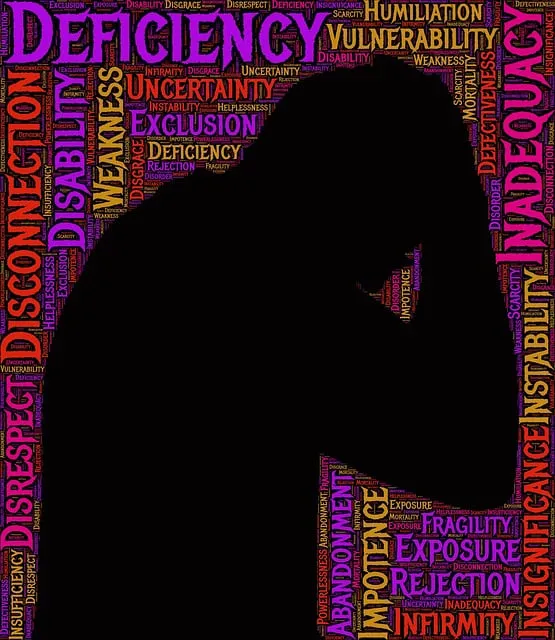Mental wellness app development is on the rise, driven by growing awareness and demand for better access to psychological care, with the Kaiser Permanente Mental Health Access Center in Louisville leading the way through its innovative digital solutions. These apps offer personalized support tailored to users' needs, from burnout prevention to empathy-building strategies, complementing traditional treatments and significantly improving mental wellness. By leveraging technology, these digital tools enhance access to mental health services, particularly in underserved communities, integrating features like meditation guides, mood tracking, gamified challenges, and progress tracking to create a safe and effective virtual environment.
Mental wellness apps are transforming access to care, echoing the innovative approach of organizations like Kaiser Permanente’s Mental Health Access Center in Louisville. As digital solutions gain traction, understanding app development becomes crucial for addressing growing mental health needs. This article explores key aspects from conceptualization to implementation, highlighting the essential features and design considerations that make these apps effective. We delve into how such initiatives, inspired by models like Kaiser Louisville, promise enhanced accessibility and improved care outcomes for a wider population.
- Understanding Mental Health App Development: A Growing Need
- Kaiser Permanente Mental Health Access Center Louisville: A Model for Digital Care
- Essential Features and Design Considerations for Effective Mental Wellness Apps
- Implementation, Challenges, and Future Prospects: Bringing Mental Health Support to More People
Understanding Mental Health App Development: A Growing Need

In today’s fast-paced world, mental wellness app development has emerged as a crucial component in addressing growing concerns about psychological health. With increasing awareness and a push for better access to care, there is a growing need for innovative digital solutions that cater to diverse user requirements. The Kaiser Permanente Mental Health Access Center in Louisville serves as a testament to this trend, offering various resources through its Community Outreach Program Implementation, which targets underserved populations and promotes mental well-being.
This shift towards digital mental health services is not only convenient but also effective in reaching a broader audience. Apps can provide personalized support, from burnout prevention strategies for healthcare providers to empathy building strategies designed to enhance user experiences. By leveraging technology, these applications have the potential to complement traditional treatment methods and significantly contribute to overall mental wellness.
Kaiser Permanente Mental Health Access Center Louisville: A Model for Digital Care

The Kaiser Permanente Mental Health Access Center Louisville stands as a beacon of innovative digital care, offering valuable insights into the future of mental wellness app development. This center has successfully integrated technology to improve access to mental health services, especially in underserved communities. By providing online platforms and digital tools, they’ve created a comprehensive virtual environment that caters to diverse user needs.
The model employs confidence-boosting strategies through interactive features tailored to individual users. Additionally, their Community Outreach Program Implementation showcases the power of community engagement in mental healthcare. Moreover, the center prioritizes professional safety by offering risk assessment resources for mental health professionals, ensuring a balanced and supportive digital care experience.
Essential Features and Design Considerations for Effective Mental Wellness Apps

Mental wellness apps are becoming increasingly popular as people seek digital tools to support their emotional well-being. To be effective, these applications must offer a blend of engaging features and thoughtful design considerations. Essential elements include customizable content tailored to individual needs, such as meditation guides, mood tracking, and access to mental health professionals. Integration with platforms like the Kaiser Permanente Mental Health Access Center in Louisville enhances accessibility, ensuring users can easily connect with resources.
Design should prioritize user experience, employing intuitive interfaces, calming aesthetics, and accessible language to foster a safe and supportive environment. Incorporating interactive elements, such as gamified challenges or virtual communities, can enhance engagement while aligning with the Mind Over Matter principles that underpin mental wellness. Additionally, including features for tracking progress over time, setting achievable goals, and accessing a Mental Health Awareness-focused podcast series production can provide users with valuable insights into their emotional journeys.
Implementation, Challenges, and Future Prospects: Bringing Mental Health Support to More People

The implementation of mental wellness apps has the potential to significantly broaden access to mental health support, especially in areas like Louisville where resources at traditional Kaiser Permanente mental health access centers might be limited. These digital tools can offer affordable and accessible solutions for individuals seeking assistance with their mental well-being. One key challenge lies in ensuring these apps provide evidence-based practices while maintaining high standards of care. Customizing the app experience to cater to diverse user needs, including those of healthcare providers overwhelmed by burnout, is essential.
Looking ahead, the future of mental wellness app development holds great promise for connecting more people with necessary support. By integrating burnout prevention strategies for healthcare providers and promoting self-care practices within these platforms, we can foster a culture of empathy and well-being. These apps have the potential to revolutionize how we approach mental health, making it more accessible, personalized, and effective for all users, regardless of their location or the resources available in their community.
Mental wellness apps have the potential to revolutionize access to mental health support, as demonstrated by the successful model of the Kaiser Permanente Mental Health Access Center in Louisville. By focusing on user-friendly design, essential features like therapy scheduling, mood tracking, and crisis resources, these apps can significantly enhance care. As development continues, addressing implementation challenges and ensuring data privacy will be crucial for widespread adoption. Ultimately, leveraging technology to bring mental health services to more people is a promising step towards a healthier future.






